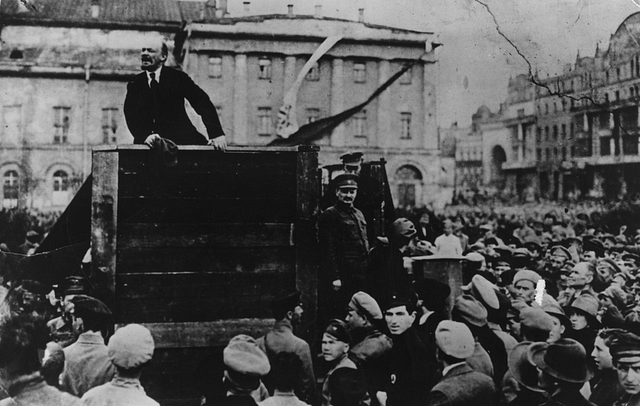
From The Archives: Leninism In Action
Dr Niranjan Dhar writes about Leninism in India in the 19 December, 1970 edition of Swarajya.
Some people in this country are apt to think that Naxalism is an aberration of communism. Those who think in this way are living in a fool's paradise. In fact, communism, like coal, has only one hue Naxalism being Leninism in action. The truth is that the great Lenin was a passionate advocate of political terror. On many occasions he emphasized the revolutionary duty of physically liquidating his political opponents and forcing obedience from the people in general. As a criterion of determining who were his political opponents, he laid down the savage principle that “those who are not with us are against us” ! Lenin's zest for mass murder earned for him the title of a "thinking guillotine" and his regime has been characterized as one of "the bayonet and the sabre”.
It is true that originally Lenin was not very favourably disposed towards political terror and individual assassinations. But his opposition at this stage sprang not from any consideration of principle but from that of expediency. He disapproved of such assassinations because experience had shown that these were not capable of putting an end to the autocratic rule in Russia. Even then he was not altogether unfavourably disposed towards the use of political terror. He simply thought that “at present time” terror was "an inexpedient means of , struggle" but simultaneously he declared that "changed conditions would call for a switch in tactics”. Writing in an issue of the Iskra in 1901 he reiterated that "in principle we have never rejected and cannot reject terror. It is one of the military operations which call be extremely useful and even essential at a certain point in the battle, given a certain state of the army and certain conditions”. It was further stated by Lenin that "for one, we shall kill five opponents". In September 1917, that is, on the eve of the capture of power by the Bolsheviks, Lenin pronounced death sentences on whole social groups of the so-called exploiters.
In view of these clear assertions on the part of Lenin, it is difficult to say that the Naxalism of our country is an aberration of communism. In fact, it is because of the close resemblance of its activities to Leninism that the Naxalite group calls itself the Marxist - Leninist Communist Party. Some time back Dange, the leader of the CPI, also observed to the effect that Naxalism was not politically or morally wrong and that it was only tactically unjustified. As a matter of fact, individual reprisals and assassinations are inherent in communism because of its supreme callousness in regard to individuals. This callousness is born of the fact that it thinks in terms of collective and abstract entities like history, parties, masses and, States.
At present West Bengal is bearing the main brunt of the attacks of Naxalite desperadoes. Every day we come across the harrowing tales of secret murders and acts of arson. The situation has been much aggravated because the traditional anti-social forces have also, joined the ranks of the Naxalites in their merry career of murder, loot and arson. Both the anti-social groups, old and new, have made life virtually impossible for the people of the. State. They are crying for protection from the State.
A Government failing to discharge even its minimum function of protecting life and property has no moral right to exist even if it enjoys majority support in Parliament. The fact, however is that the Indira Government is a minority Government existing on sufferance from the CPI. As a result, we are now living under the de facto rule Bhupesh Gupta. This Government has signally failed not merely in maintaining law and order in West Bengal. Its failure in the economic sphere as well is monumental as is evident from low industrial production mounting unemployment and soaring prices. It is therefore high time that this Government should go immediately and a national Government is formed under strong leadership.
This article was penned by Dr Niranjan Dhar and originally appeared in the 19 December 1970 edition of Swarajya.